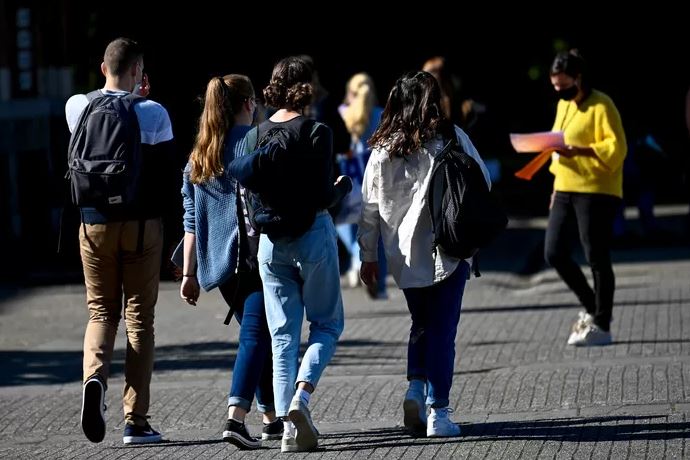The Dutch-speaking education system has been facing chronic teacher shortages for a while, increasingly leaving students lagging behind and with classes being cancelled. The crisis is also having more and more impact on students' ability to sit their exams.
For some years now, schools have had to cancel exams because pupils have barely mastered a subject for the entire trimester, according to the umbrella organisation for Dutch-speaking schools in Flanders and Brussels, Catholic Education Flanders (KVO). As the lack of teachers grows, so too does this phenomenon.
"The phenomenon remains limited for now, but it is becoming more acute every year," Pieter-Jan Crombez, KVO's spokesperson, told The Brussels Times. He stressed that the cause of the issue is, once again, clearly the shortage of teachers.
He explained that schools are creative and teachers show great commitment in looking for solutions, but stressed that asking students to sit an exam in a subject that has not or hardly been taught is difficult. "It also makes the class councils even more difficult."
Chronic shortage persists
The KVO has sounded alarm bells regarding the shortage of staff in primary and secondary schools multiple times and more recently has openly criticised the lack of response from the Education Minister, Ben Weyts, saying the government is not doing enough to tackle it.
Crombez said he hoped the minister "finally takes the problem seriously and takes decisive action." When asked about the cancellation of exams due to subjects not being sufficiently taught, Weyts' cabinet told The Brussels Times that it was not clear just how many schools were taking this action.
Related News
- Huge teacher shortages in Belgium leave students lagging behind
- Cries for help from education sector grow as financial resources drain
- Brussels universities join forces to tackle chronic teacher shortages
Weyts' Spokesperson recognised that the shortage of teachers "has been a problem for years," but said that during this period of government, many sacred cows have been tackled, including the agreement on permanent appointments, seniority for lateral entrants, as well as more financial flexibility for schools.
He added that Weyts will continue to "fight this battle to make the profession attractive in the market and to give teachers more space for their core task, that being teaching." He concluded that by raising the quality of education again, more people will be attracted to the profession.

